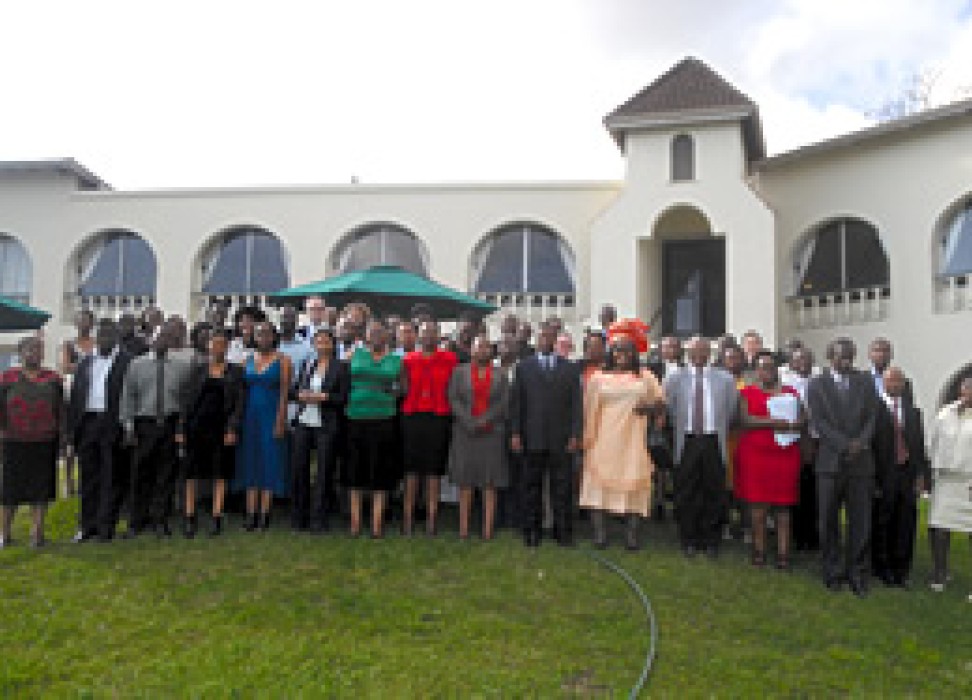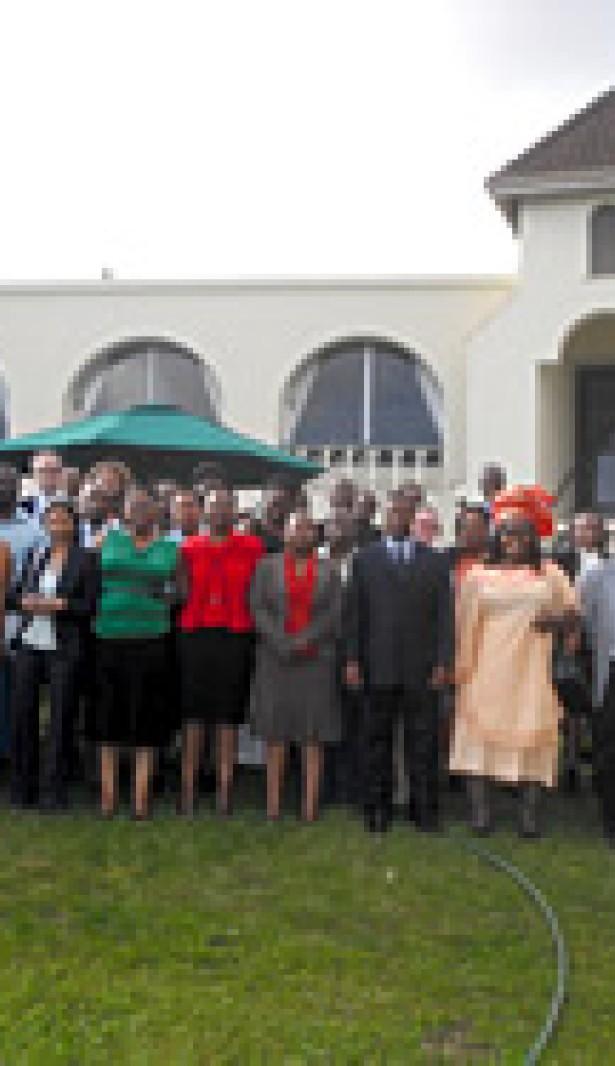The UN Human Rights office working to build capacity
14 March 2012

The training, organized in collaboration with the UN Country Team, presented a rare opportunity for civil society and government to engage in a dialogue on critical human rights issues.
Sibongile Mazibuko, the President of the Swaziland National Association of Teachers was one of 63 participants from Government and civil society in the training on treaty body reporting offered by the UN Human Rights office. Speaking to the Times of Swaziland afterwards, Mazibuko said, “I learnt that writing such reports is not about naming and shaming of certain individuals, it’s about making sure the right conditions for human rights in a country are implemented.”
Participating at the end of 2011 in the Human Rights Council Universal Periodic Review (UPR), Swaziland acknowledged that it had not been able to meet its reporting obligations under the six international human rights treaties which it ratified to dateand requested assistance from the Human Rights office.
The Universal Periodic Review involves an appraisal of the human rights records of all 193 UN Member States once every four years. Under the auspices of the Human Rights Council, the UPR gives each State the opportunity to declare what they have done to improve the human rights situations in their countries and to meet their human rights obligations.
Representatives from many government ministries, amongst them Justice, Home Affairs, Health and Labour attended the treaty body training as did members of various civil society organizations. The programme covered presentations on the UN human rights system and practical exercises on how to prepare reports. The UN Human Rights office was also able to facilitate the drafting of a roadmap for treaty body reporting to assist the Swaziland Government in the preparation and submission of its initial report to the Human Rights Committee.
Addressing participants at the workshop, Swaziland’s Minister of Justice and Constitutional Affairs, Chief Mgwagwa Gamedze stressed that the purpose of treaty reporting was not only the fulfillment of a legal obligation but to assist in the assessment of the human rights situation in a given country, and to promote the participation of civil society, parliament and national human rights institutions. He promised to consider institutionalizing treaty body reporting in Swaziland.
“Treaty body reporting is not an end in itself, but a means to improve the human rights situation in the country,” says Ibrahim Wani, Chief of OHCHR’s Africa Branch.
Many States request assistance from the UN Human Rights office in achieving compliance with human rights treaties. In 2011 alone, the UN Human Rights office worked in many countries, including Belize, Burkina Faso, Burundi, Croatia, Former Yugoslav Republic of Macedonia, Gambia, Honduras, Kyrgyzstan, Mexico, Republic of Congo, Sao Tome and Principe, Serbia, South Africa, Turkmenistan, Vietnam, and a regional grouping of 17 European countries to draw up national roadmaps providing guidance on the substance of the treaties, reporting, and follow-up.14 March 2012

VIEW THIS PAGE IN:
